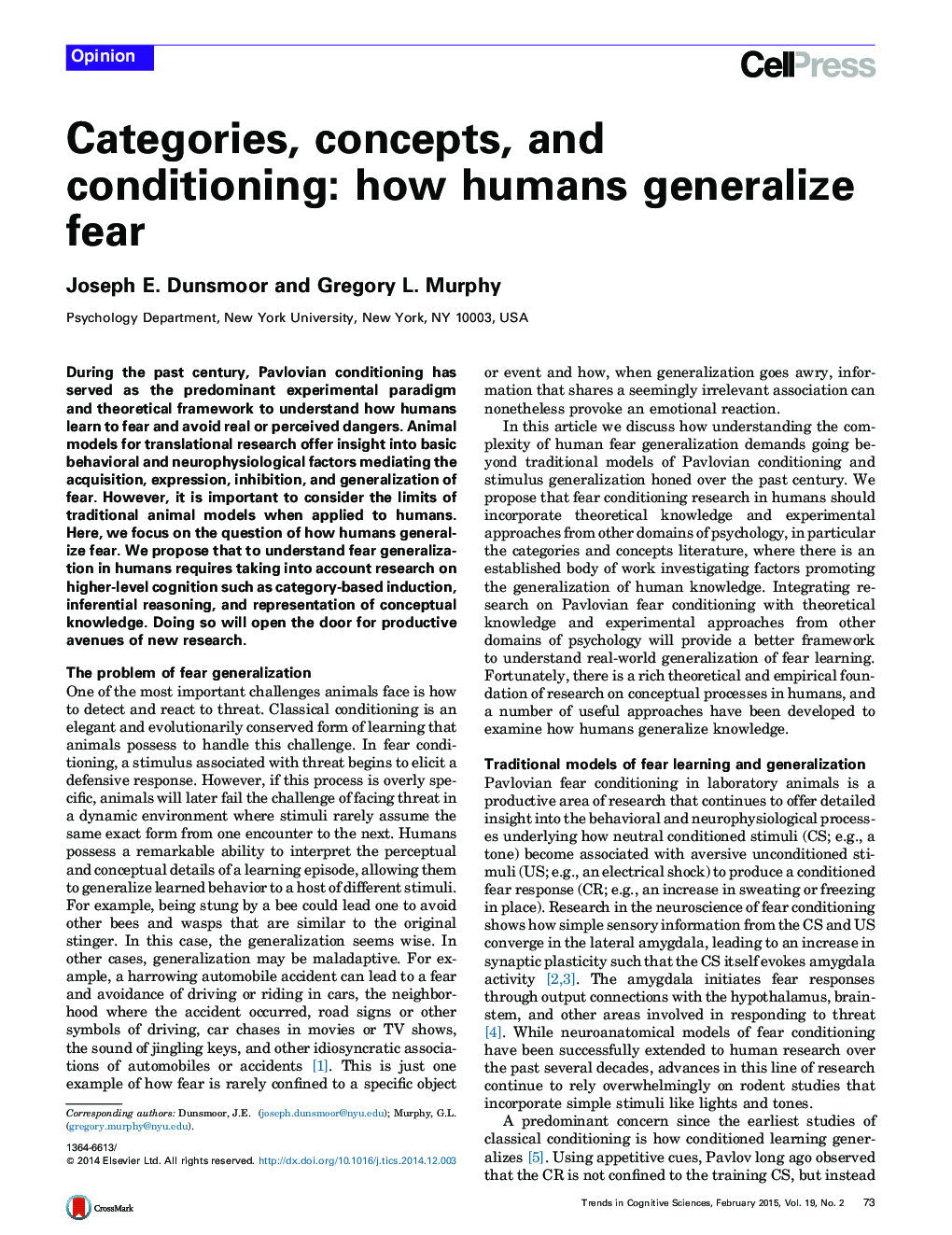| Article ID | Journal | Published Year | Pages | File Type |
|---|---|---|---|---|
| 141451 | Trends in Cognitive Sciences | 2015 | 5 Pages |
•Pavlovian conditioning is an important model for understanding fear and anxiety in humans.•We review recent findings that cannot be accommodated within animal learning models.•We argue that concepts and reasoning may be central to understanding how humans generalize fear.•We identify new paths that research should explore in order to identify the role that higher-level cognition plays in fear generalization.
During the past century, Pavlovian conditioning has served as the predominant experimental paradigm and theoretical framework to understand how humans learn to fear and avoid real or perceived dangers. Animal models for translational research offer insight into basic behavioral and neurophysiological factors mediating the acquisition, expression, inhibition, and generalization of fear. However, it is important to consider the limits of traditional animal models when applied to humans. Here, we focus on the question of how humans generalize fear. We propose that to understand fear generalization in humans requires taking into account research on higher-level cognition such as category-based induction, inferential reasoning, and representation of conceptual knowledge. Doing so will open the door for productive avenues of new research.
